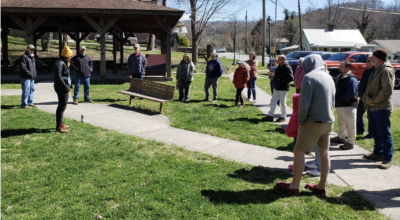Staying safe in the cold
Published 11:44 am Tuesday, November 28, 2017
It’s that time of the year and frigid weather is upon us. With cold weather comes a unique set of safety concerns and hazards to always be aware of when enjoying the holidays.
The Farmers Almanac predicts harsh winter for the area — but the annual guide isn’t always the best predictor of weather patterns. Even so, the unpredictability of the weather is all the more reason to be as prepared as possible if the time comes.
The first key to safety is knowing the terminology and what to look out for. A winter storm warning is not a simple heads-up about some snow — it means potentially life-threatening winter conditions ready to start in the next 24 hours. A blizzard can have sustained winds that reach 35 mph or higher which can naturally cause severe visibility problems when out of the house.
There are many steps to take to make you and your family safer during the winter season. Having your vehicle’s winter-ready is key. This includes checking the battery, fluids, oil, brakes, defroster and heater. Having winter-approved tires is also highly recommended. Simple things like keeping a window scraper handy in your vehicle and non-clumping cat litter to scatter and avoid slips and falls can make the day-to-day much easier.
Winter-proofing your home is also a good idea. Checking your home for proper insulation and fixing any issues can keep your house warmer. Frozen pipes are always an issue this time of year. Letting cold water drip from faucets on particularly cold nights will keep water flowing, thus stopping it from freezing. Insulating plumbing in attics and basements also keeps the worst of the cold at bay. Electric space heaters aren’t a bad idea either-and keeping some wood around if you have a fireplace is a given.
If you must be outside during severe cold or blizzard conditions wearing multiple layers is the first thing to do. The outer layers should be water resistant. Cover your mouth and take small breaths to avoid breathing in too much cold air. Stay as dry as possible and change wet clothes when possible. Go easy on the labor. Excessive strain while shoveling or other activities, coupled with the cold, could potentially cause a heart attack. If you have to use transportation, follow safety precautions because 70 percent of ice- and snow- related deaths happen in automobiles. If the weather abates, the hazards aren’t over. Avoid driving until roads are clear and the snow and ice is melted.
These tips and precautions are only the tip of the iceberg.
For more information on how to stay safe during heavy winter weather visit http://www.redcross.org/get-help/how-to-prepare-for-emergencies/types-of-emergencies/winter-storm#About.
Some information for this article was found at http://www.knoxnews.com/story/weather/2017/10/01/tennessee-winter-2018-forecast-farmers-almanac-snow-cold-deep-south-georgia-north-carolina-season/719127001/.






